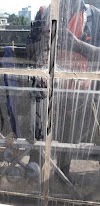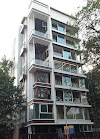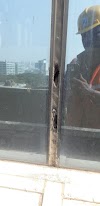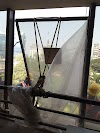🌍 Smoke or Light? Understanding the Hidden Air Pollution Around Festivals
Every year, as we step into the festive season, our homes and streets light up with colors, joy, and togetherness. Festivals are an essential part of human culture — they existed long before modern technologies, industries, or even fireworks. But in recent decades, one tradition has increasingly clouded our celebration — firecrackers.
🎆 Firecrackers vs. Festivals — A Historical Glimpse
Firecrackers were invented in China around the 7th century, originally used to scare away evil spirits. In contrast, most cultural and religious festivals were celebrated centuries before that — with light, togetherness, and simplicity, not smoke or noise.
That’s why it’s important to remind ourselves:
“Festivals are meant for light — not for smoke.”
This article is not against any festival or belief. It’s simply an effort to make people aware that air pollution caused by firecrackers can severely impact our health, especially during winter when the air becomes still and pollutants remain trapped near the ground for longer periods.
💨 What’s Inside Firecracker Smoke?
When firecrackers burst, they release a mix of harmful substances, including:
-
Sulphur dioxide (SO₂)
-
Nitrogen oxides (NOx)
-
Carbon monoxide (CO)
-
Fine particulate matter (PM 2.5 & PM10)
-
Heavy metals like lead, barium, strontium, and aluminum
How It Affects the Human Body
The harmful components in firecracker smoke affect people differently depending on age and health condition:
-
👶 Children: Their lungs are still developing, making them highly vulnerable to pollutants. Prolonged exposure can cause respiratory infections, asthma, and reduced lung function.
-
👵 Elderly: Seniors, especially those with pre-existing conditions like COPD or heart disease, experience aggravated breathing difficulty and fatigue.
-
🤧 Adults: Eye irritation, coughing, sore throat, and headaches are common. Over time, fine particles can cause chronic respiratory problems and allergies.
The air outside doesn’t stay outside — it enters your home through open windows, ventilators, and gaps, reducing indoor air quality even if you stay indoors.
🌬️ Not Just Firecrackers — Other Sources Too
Yes, other sources also contribute to air pollution — vehicular emissions, industrial smoke, dust from construction, and agricultural burning. But during festive times, firecracker smoke directly surrounds residential areas, creating concentrated pockets of pollution right near our homes, balconies, and societies.
🏠 Protecting Indoor Air — A Practical Solution
While we can’t control outdoor pollution completely, we can surely reduce what enters our homes.
That’s where Nanofiber Mesh plays a vital role.
Product Features:
-
Comes in roll form (width: 1.5 m, length: 70 m)
-
Colors: Black (default), Light Grey, Light Yellow
-
Thickness: Just 0.38 mm — ultra-thin and lightweight
-
Can be installed in sliding window shutters like glass or mosquito nets
-
Installation options: Velcro or PVC strip mounting
Restricts PM 2.5, fine dust, pollen grains, bacteria, insects, fly ash, allergens, and even water droplets
Blocks UV and IR rays, reducing heat transfer by over 50%
Ensures excellent air permeability and filtration capacity — allowing only clean air to pass through
Highly tensile, non-corrosive, and easy to clean — simply rinse with water
🌟 Light, Joy & Care Can Coexist
Let’s celebrate with the spirit of togetherness, cleanliness, and care. Fireworks might last a few seconds, but the air they pollute lingers for days — affecting everyone, even those who didn’t light them.
So this year, light up your homes with lamps, diyas, and smiles, and ensure your air stays pure with the Nanofiber Mesh.













0 Comments